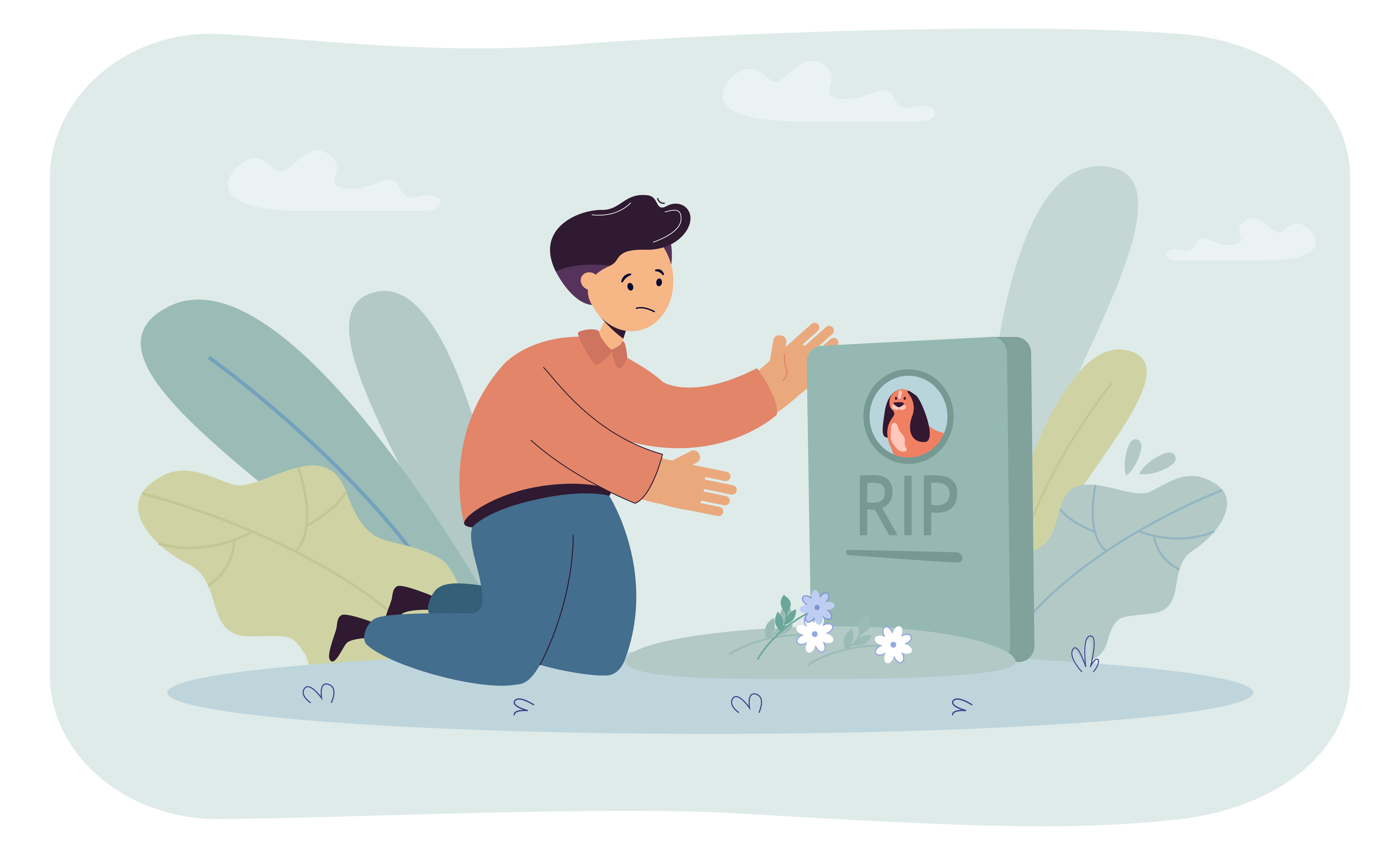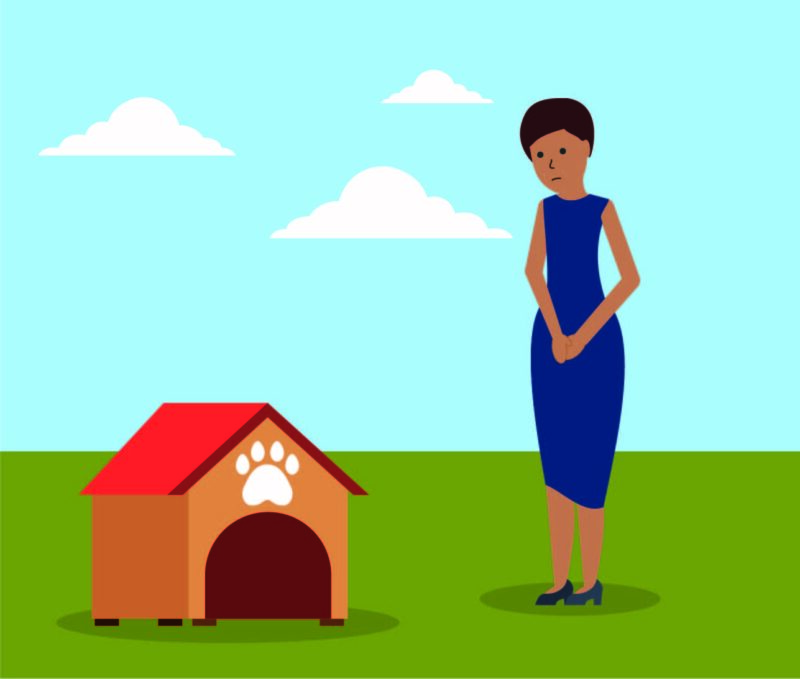Coping with an Animal Companion Death
Animal Companion Death
When your animal companion dies, the grief you feel can be as strong or even stronger than when a friend or family member dies. Animals, whether they are pets or service animals, often seem to better understand you than anyone else. When they are no longer present in your life, you may experience grief.

Death from Natural Causes
Just like people, animal companions grow old and can have health problems as they age. At any age, they can develop many illnesses, such as cancer and diabetes. These illnesses may cause your pet to slowly sicken over weeks or months. It can be hard to watch this happen.
You may begin grieving when you hear that your animal companion has an illness that can’t be cured, and that their life will be ending soon. It can be difficult to think about what your life will be like without your companion.
For many people, it is helpful to start planning for what to do to cope when their pet dies. Some people begin thinking about when it might be good to get a new pet. For others it is too hard to think about another pet.
Everyone is different and grieves differently when their pet dies. You can decide how to respond and cope in ways that are right for you. The suggestions in the section below called “Ways to Cope with Grief” may be helpful as you grieve your pet’s death.
Death by Euthanasia
Some animal companions die by euthanasia, which is often incorrectly described as being “put to sleep.” A veterinarian may suggest this procedure because it helps the animal die painlessly. This is usually suggested if an animal is extremely sick or injured with little or no hope of getting better. The vet uses an injection of drugs that makes the animal unconscious and then stops their heart and breathing, causing a peaceful death.
Some animal companions are euthanized because they are a danger to other animals and people. Deciding to help your animal companion die peacefully with euthanasia is difficult even if the vet says it is the best thing to do.
Trusted family, friends, advocates, and your veterinarian can help you make the best decision and provide support. However, you should never feel pressured about using euthanasia to help your animal companion die unless it is an emergency.
You can choose whether to stay with your animal companion while it is euthanized. Some people do this to say goodbye and provide comfort to the animal. Communicate your wishes to the vet if you would like to be with your animal companion. Making the decision to be with your animal companion during euthanasia is a personal decision and is not right for everyone.

Ways to Cope with Grief
Just as with the death of a person you care about, the loss or death of an animal companion can make you feel like your life has drastically changed in important ways. It is natural to grieve about this.
The people around you may not understand your grief reactions because they did not have the same relationship with the animal. They also may not understand because they grieve differently and may expect a different grief response from you. Everyone grieves in their own way, and there is no right or wrong way to feel grief.
Here are some suggestions to help you cope with your grief:
- Seek comfort from trusted friends, family members, a clergy person, faith community, or support person.
- Take time to allow yourself to grieve. Recognize that if your grief keeps you from being able to work or enjoy your other activities for a long time, you may need to seek professional help from a counselor.
- Hold a small memorial service for your animal companion either alone or with trusted a support person, family member, and/or friend.
- Keep an item that belonged to your animal companion, like a dog collar, a cat toy, or their favorite blanket, and hold it when you’re feeling sad. Whatever the item is, holding it closely may help you to remember your animal companion.
- Place a small statue or stone in your yard or home to visit when you miss your animal companion. When people die, they are often buried in a cemetery and loved ones can visit that spot. Since animals usually aren’t buried in cemeteries, this allows you to have a special place to connect to your companion.
- When you are ready, consider volunteering at an animal shelter so you can help care for animals who need love and attention.
- Recognize that, just as with a family member or friend who has died, you may feel a strong bond with your animal companion, even after it has died. Remembering this bond can help with your grief, especially as you remember good times you had together.
- Remember to take care of yourself by eating healthy food, drinking enough water, and getting enough sleep.
- Use coping techniques such as stimming, music, drawing, walking, indulging in your favorite hobby or any calming activity.
- When you feel ready, you may want to consider bringing another animal companion who needs a home into your life.

If Your Animal Companion is Missing
It is not unusual for badly injured or very sick animals to leave their homes to find a place to die in nature. This can be especially upsetting and cause you to grieve because you cannot find the pet and do not know exactly what happened.
Sadly, there are times when an animal needs to leave a home because someone in the home decided the pet was a problem.
Not knowing whether an animal companion is missing or has died can make you feel sad or anxious. These are feelings of grief over something that has been lost, which may feel even worse than if you definitely knew the animal had died.
Social Story
This social story may be helpful to you as you cope with the death of your animal companion.
